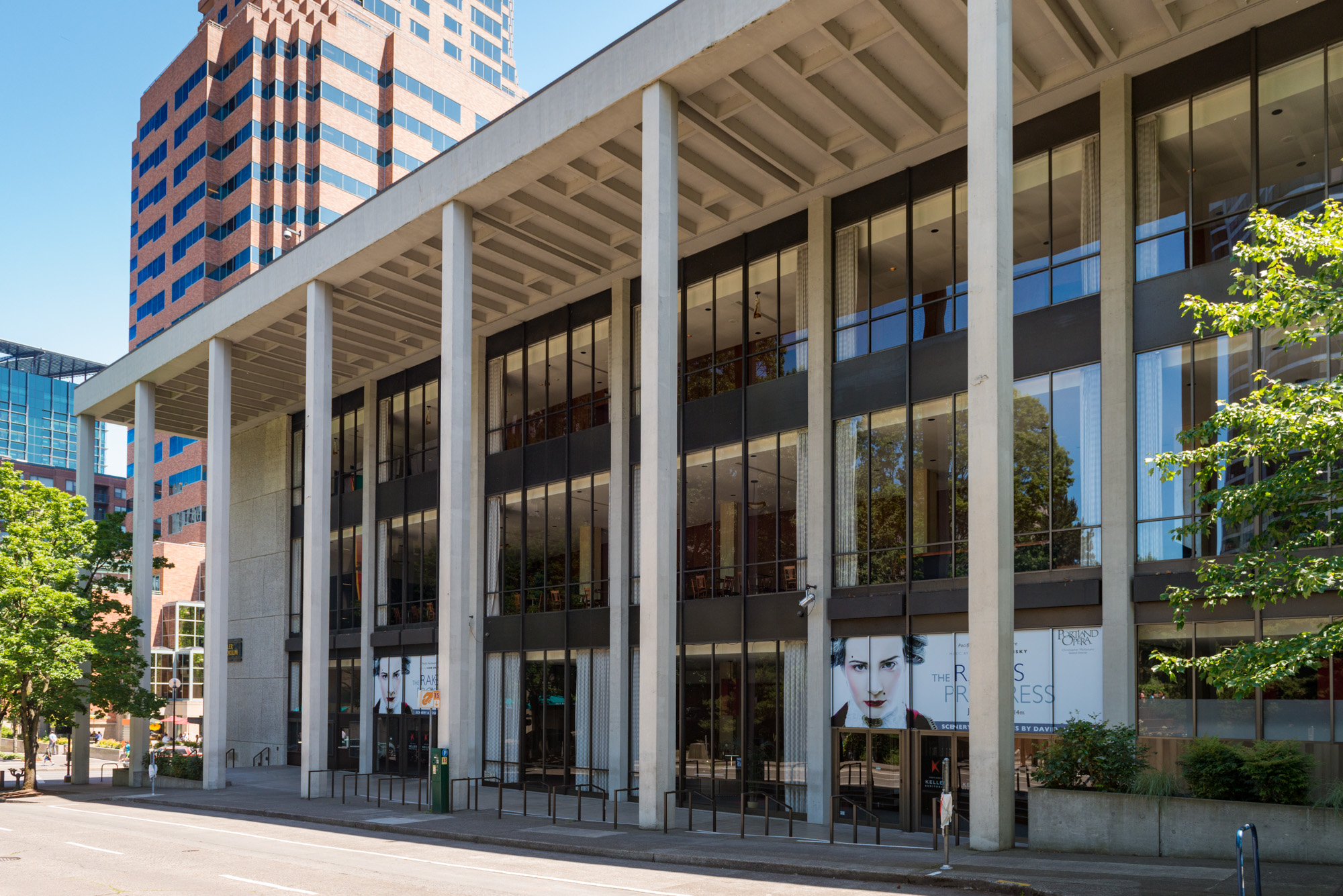Cities and counties throughout the U.S. are launching or planning new cultural arts centers. Many of them have plans to partner with universities, local foundations or non-profits. Others may have leveraged state or federal funds, but however it is obtained, funding does not seem to be a major hurdle. That’s because cultural centers generate revenue, encourage citizen engagement and create economic vitality.
The following upcoming opportunities are typical of many currently in the planning stages with scheduled launch dates in 2025. Most are high-cost construction initiatives that will either replace an aging facility or deliver a new one. These types of projects are exciting and are usually developed with lots of input from the communities. Many provide benefits to the entire state where they are located.
In a unanimous vote, elected officials in the city of Portland, Oregon recently approved a strategic plan that calls for two substantial theater projects. Together, the two projects are budgeted at a combined cost of $600 million. The Portland city council is committed to preserving Portland’s arts and culture district which provides a significant boost to the city’s downtown economy. The first project will involve renovation of the Keller Auditorium, which is currently vulnerable to earthquakes, and the second project will deliver a new performing arts center on the Portland State University campus.
Although a detailed timeline is yet to be finalized, the available information indicates that the Portland State University theater will be planned and delivered by 2029. Both facilities will be Broadway capable, meaning that both have the dimensions, lighting, and infrastructure required for hosting Broadway performances.
A large $170-million-dollar project to deliver an 85,000 square-foot multi-arts facility in South Gate, California has been announced. Dubbed the Southeast Los Angeles Cultural Center, its design will combine world-class architecture with the vibrant culture of the Southeast Los Angeles community. The arts complex, when completed, will include a performance hall, music education spaces, professional recording studios, a dance theater, café, workshop areas, galleries, and expansive plazas with gardens. The new center will also provide a permanent space for creative expression, and it will support, encourage, and showcase local artists.
Currently in the design phase, the project has already secured 76% of its total estimated budget, including $132 million from state coffers. An advisory panel has been named and the group will guide the development to ensure alignment with community needs and goals. A construction start date will not be announced until the design phase has been completed. The overall objective is to construct a building that will not only be a landmark facility in Los Angeles County, but also a transformative beacon that will draw visitors from the entire state.
A $365 million project in Sarasota, Florida, will replace the aging Van Wezel Performing Arts Hall with a new performing arts center. The existing Van Wezel theater has become too small for the city’s events, and it is also vulnerable to climate change effects such as rising sea levels. Components of the project will call for the facility to include rooftop terraces, bar spaces, a large Broadway capable theater with the capacity to seat at least 2,700 people, and public spaces near the theater for outdoor events. Parking will also be included as part of the final plan. A design partner and an architecture firm are currently working on the planning phase but until that is completed, no timelines for solicitations or contracting selections has been finalized. This effort will be a joint venture between the City of Sarasota and the Sarasota Performing Arts Foundation. Construction is expected to begin in 2026.
A $32 million new ArtsQuest Southside Cultural Arts Center is planned as a replacement for the aging Banana Factory in Bethlehem, Pennsylvania. It will be designed as a state-of-the-art, five-story, 78,500-square-foot facility with capabilities to support expanded arts-based programming, economic growth, and community engagement. This comprehensive redevelopment’s objective is to create a modern visual and performing arts hub featuring 36 subsidized artist studios, expanded gallery areas, dedicated meeting and event spaces, and enhanced classroom facilities. The facility will partner with the Bethlehem Area School District which also has a venue that hosts comedic performances and year-round cultural programming for all ages.
Key project components will include a 5,500-square-foot glass studio, smart building technologies, and sustainability enhancements such as energy-efficient windows, LED lighting, advanced HVAC systems, and water-saving fixtures. Accessibility will be improved as the facility will be designed to ensure seamless navigation across all five floors, with ramps, elevators, clear signage, accessible restrooms and easily navigated pathways. The construction plan will call for environmental construction practices to include recycled and low-impact materials, allowing the building to meet all the latest green standards. Expanded capacity for classes, art studios and community events will be available. City officials and community leaders have made a commitment to foster deeper engagement with the arts, ensuring that the new Center becomes a transformative project for Bethlehem. A construction date is scheduled for 2025.
Large cultural arts center projects require architectural expertise, modern construction elements, sustainability components, leading edge technology, equipment, landscaping, furniture, and decorative enhancements of all types. Interested firms seeking to become prime contractors have ample time to visit with local officials, gather more details, seek out local partners as subcontractors, engage with community supporters and position themselves to compete for contracting opportunities.
Photo courtesy Oregon State Archives













